
Rohingya Crisis
New:
- 6th Rohingya Genocide Remembrance Day: 25 August 2023 –
- 17 July 2023: Guide on International Justice Mechanisms for Humanitarian Actors working with the Rohingya. Read more
- 2 February 2022: 807 Rohingya Call on ICJ to Reject Military Junta. Read more
- 25 August 2021: ICC Victim Submission for Rohingya clients following NUG Declaration. Read more
Overview
LAW’s ground-breaking Rohingya Crisis programme seeks to ensure meaningful Rohingya participation in the ongoing international justice processes pertaining to their treatment in Myanmar, including: the case before the International Court of Justice (ICJ) on the application of the Convention on the Prevention and Punishment of the Crime of Genocide (The Gambia v. Myanmar); the ongoing investigation by the Officer of the Prosecutor of the International Criminal Court (ICC) and the work of the Independent Investigative Mechanism on Myanmar (IIMM). LAW works closely with the different legal teams working within these mechanisms. Additionally, LAW undertakes innovative strategic litigation on behalf of more than 500 Rohingya clients, and ensures Rohingya voices are prioritised throughout its advocacy.
Addressing the brutal sexual violence perpetrated by the Myanmar Army (Tatmadaw) during the 2016 and 2017 ‘clearance operations’ which led to the displacement of more than 800,000 Rohingya from northern Rakhine state, Myanmar, into neighbouring Bangladesh, is a central area of focus within LAW’s Rohingya Crisis response. In addition to empowering Shanti Mohila (Peace Women), a group of Rohingya women and girls displaced in 2017, LAW works closely with male and Hijra (third gender, transgender, intersex) survivors of sexual and gender-based violence to ensure their access to justice.
The international court of justice
In December 2019, LAW supported three Rohingya survivors, in travelling from the camps in Cox’s Bazar to The Hague for the hearings on provisional measures in the case between The Gambia and Myanmar on the application of the Convention of the Prevention and Punishment of the Crime of Genocide. They were the only refugees from the 2017 ‘clearance operations’ to be able to travel. The presence of the refugees in the court room was explicitly highlighted by the Gambian legal team during proceedings. H.E. Mr. Abubacarr Tambadou, then Gambian Attorney General and Minister of Justice, noted in his statement to the court: “I am also pleased that The Gambia’s delegation today includes members of the Rohingya community, including those who have travelled from the refugee camps in Bangladesh.” While International Court of Justice proceedings are inter-state proceedings, LAW considers the Rohingya presence in the court and the continued engagement by The Gambia legal team with LAW’s clients an acknowledgement of great importance of these proceedings to the Rohingya community.
LAW continues to support the International Court of Justice proceedings.
The International Criminal Court
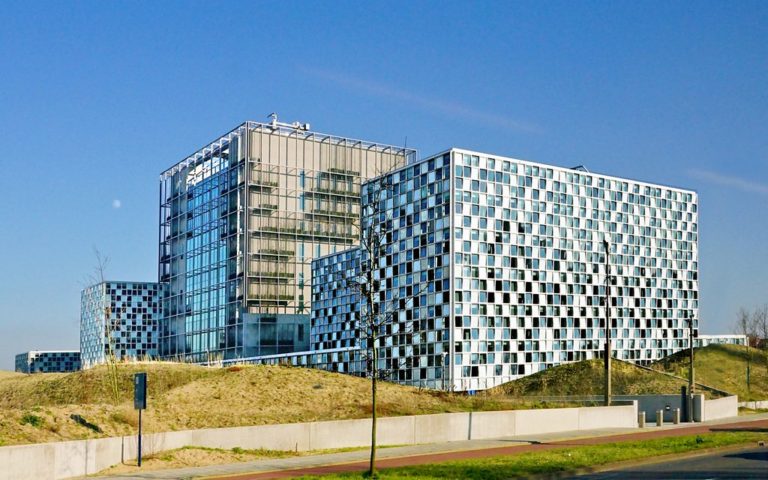
“International Criminal Court, ICC” by Roel Wijnants is licensed under CC BY-NC 2.0
LAW represents more than 500 Rohingya survivors of international crimes in respect of the ongoing investigation by the Office of the Prosecutor of the International Criminal Court. The investigation was authorised by the ICC Pre-Trial Chamber in November 2019, and covers any crime within the Rome Statute, where an element of that crime took place in state party to the ICC, would be within the jurisdiction of the Court.
Three victim submissions have been filed with the ICC on behalf of LAW’s clients. These include a first-of-its-kind victim submission in August 2020 arguing that future proceedings take place in Bangladesh (or outside The Netherlands) allowing better Rohingya participation and understanding of the proceedings. In its decision, the Pre-Trial Chamber, confirmed the right of victims to make this request and noted that it would continue to review this matter.
In 2018, Shanti Mohila gathered 400 thumbprints from Rohingya women in their community for their first victim submission, supporting the Office of the Prosecutor’s request for jurisdiction, and arguing that a greater range of crimes should be included.
Survivor Advocates: Building Capacity for Community Empowerment
Sexual violence was a hallmark of the 2017 ‘clearance operations,’ and many refugees in Kutupalong camp now live with the trauma of that violence. LAW works with the Rohingya community to alleviate the cultural stigma and feelings of shame that prevent victims from accessing the legal, medical and psycho-social support that they need to manage their trauma.
Currently, LAW provides ongoing training to 80 Rohingya (50 women and 30 men) to act as a network of Survivor Advocates. Survivor Advocates assist and support Rohingya community members, especially survivors of sexual and gender-based violence in the camps.
Survivor Advocates are trained to conduct community awareness sessions so that they can provide legal information about the ongoing international justice processes related to the Rohingya Crisis and assist LAW’s clients in accessing relevant services. The training includes clear, up-to-date information about the International Criminal Court investigation and the International Court of Justice case between The Gambia and Myanmar on the application of the Convention on the Prevention and Punishment of the Crime of Genocide.
LAW also trains Survivor Advocates on gender equality, and SGBV, including on the different forms of SGBV and the legal rights against SGBV available to women under international law. Survivor Advocates are also provided with a safe space to discuss grass-roots level interventions to combat SGBV within the camps.
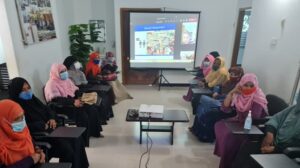
LAW’s female survivor advocates attend an interactive workshop on GBV response and prevention on the 25th November 2021 to mark the International Day for the Elimination of Violence Against Women.
The Myanmar National Human Rights Commission
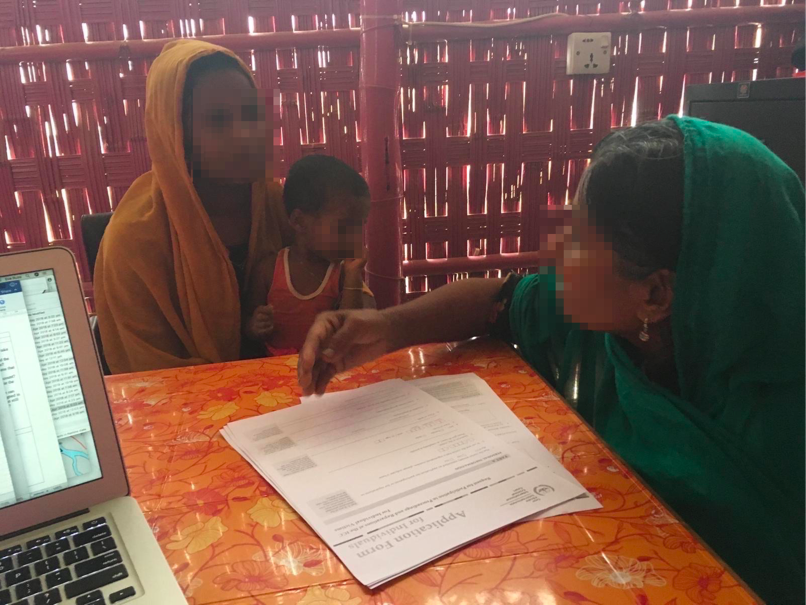
LAW gathers victim applications from Shanti Mohila (faces obscured for security reasons)
On 10 December 2020, LAW and McDermott, Will and Emery LLP submitted the first complaint by a Rohingya complainant to the Myanmar National Human Rights Commission (the Commission) on behalf of one of its clients, Setara, whose husband was one of 10 men killed during the ‘Inn Din Massacre.’ The complaint argued that serious failings in the investigation of this crime, and in punishing those involved, amounted to serious violations of Ms Begum’s rights. The complaint requests that the Commission recommend Setara and the Rohingya community receive $2 million in compensation, in line with international practice.
Myanmar consistently argues that national mechanisms (domestic remedies) are sufficient to address human rights violations and conduct amounting to international crimes experienced by the Rohingya – Setara’s complaint puts this assertion to the test.
Rohingya Mission to The Human Rights Council
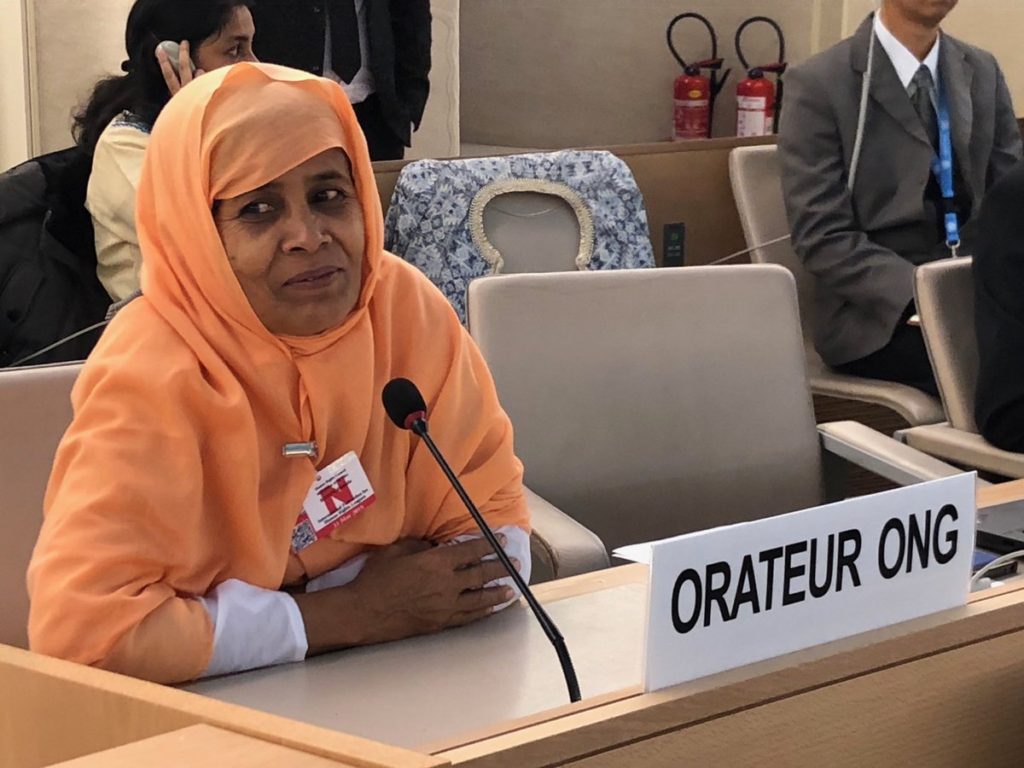 On Monday 11 March, Hamida Khatun, a member of Shanti Mohila, became the first female member of the Rohingya directly affected by 2017 ‘clearance operations’ by Myanmar Armed Forces (Tatmadaw) to appear before the Human Rights Council in Geneva. Legal Action Worldwide was delighted to support Hamida in this historic event.
On Monday 11 March, Hamida Khatun, a member of Shanti Mohila, became the first female member of the Rohingya directly affected by 2017 ‘clearance operations’ by Myanmar Armed Forces (Tatmadaw) to appear before the Human Rights Council in Geneva. Legal Action Worldwide was delighted to support Hamida in this historic event.
In her statement, Hamida described her experience fleeing Northern Rakhine State following the attack on her village and murder of members of her family. She emphasised that her experience is not unique and that hundreds of thousands of Rohingya are currently based in impoverished refugee camps in Bangladesh. Hamida set out three key requests from Shanti Mohila to the international community: Justice including compensation; to return home in safety and security including citizenship; and access to education.
You can read Hamida’s statement here.
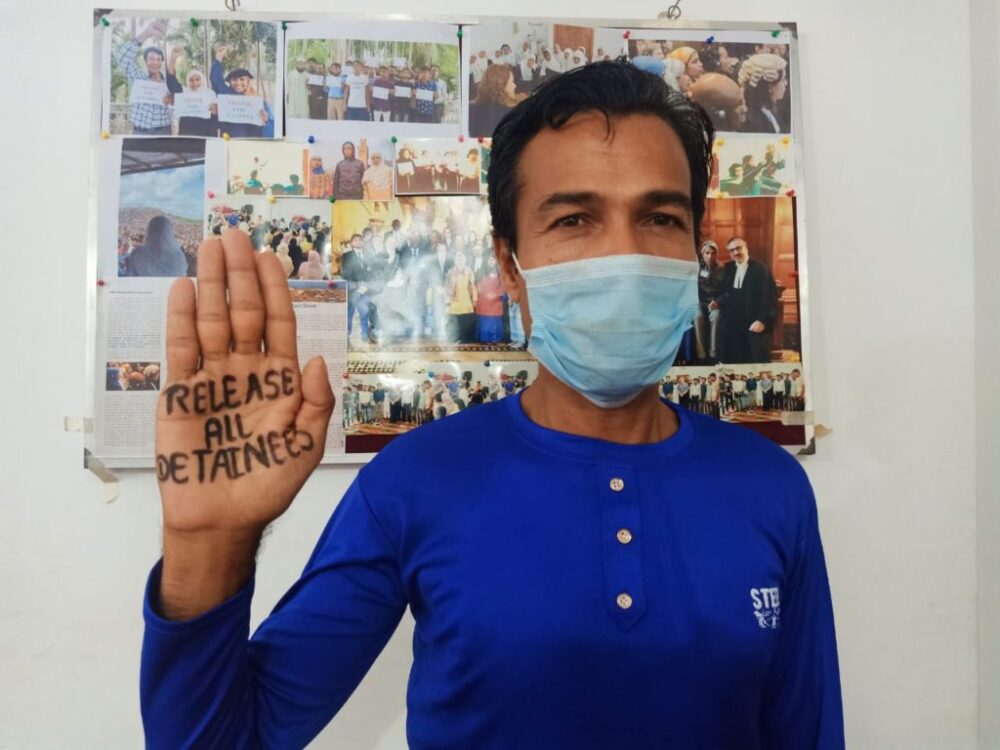
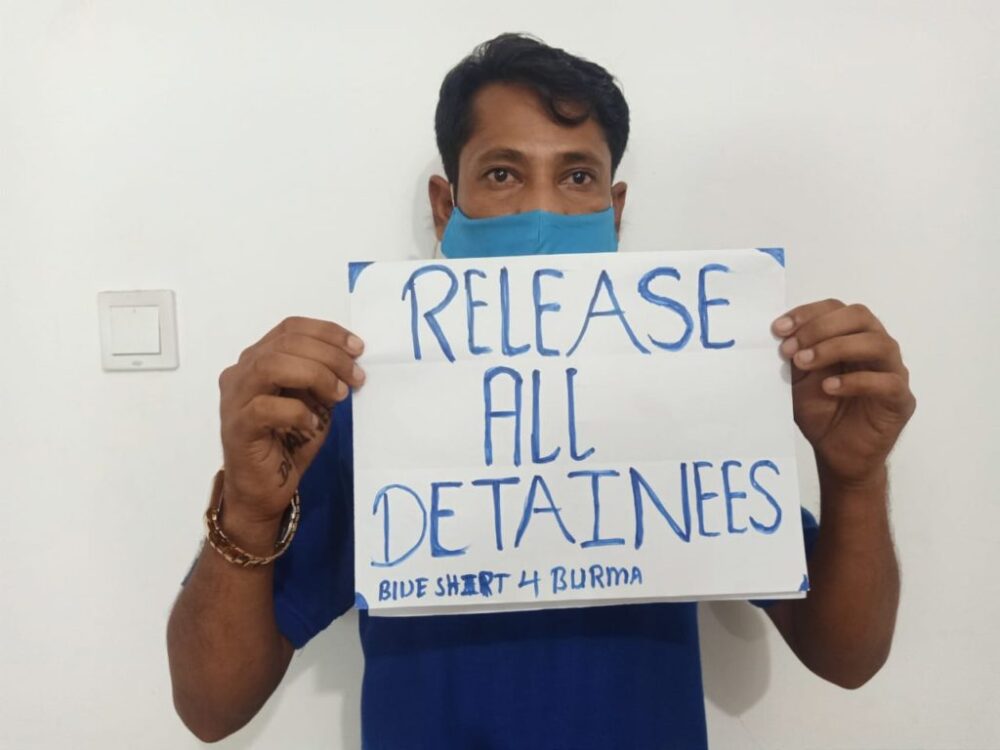
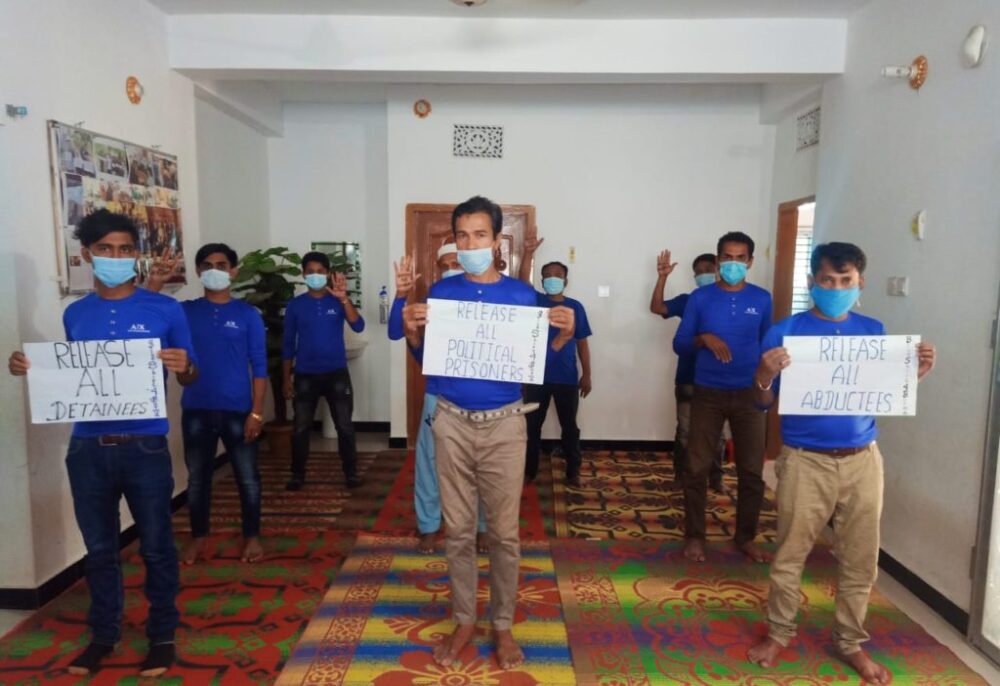
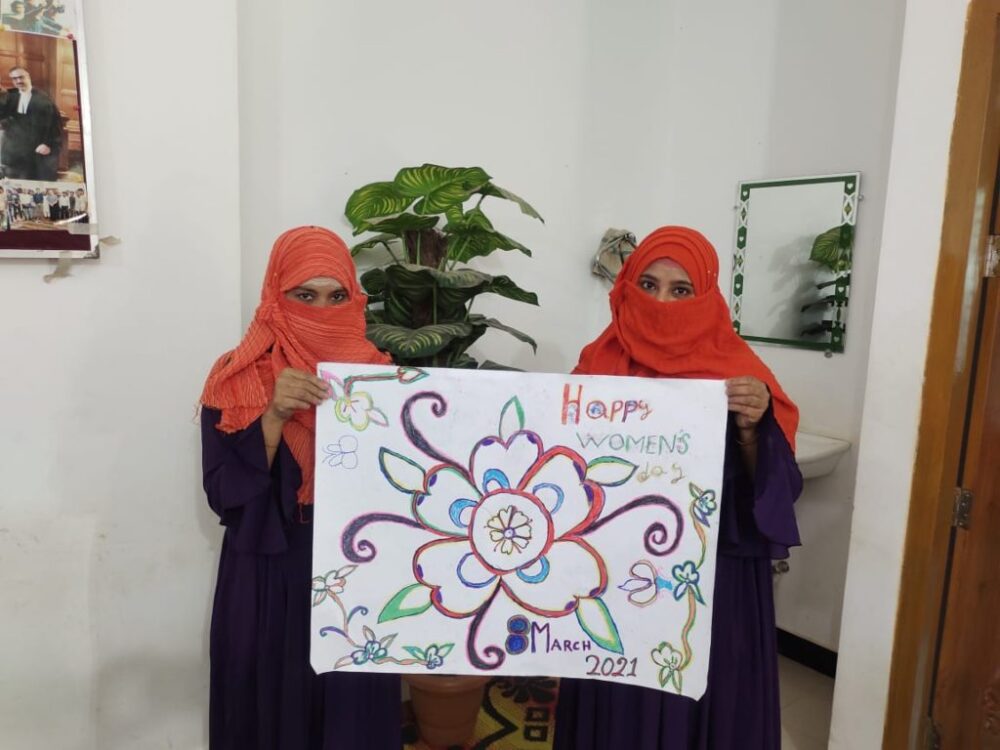
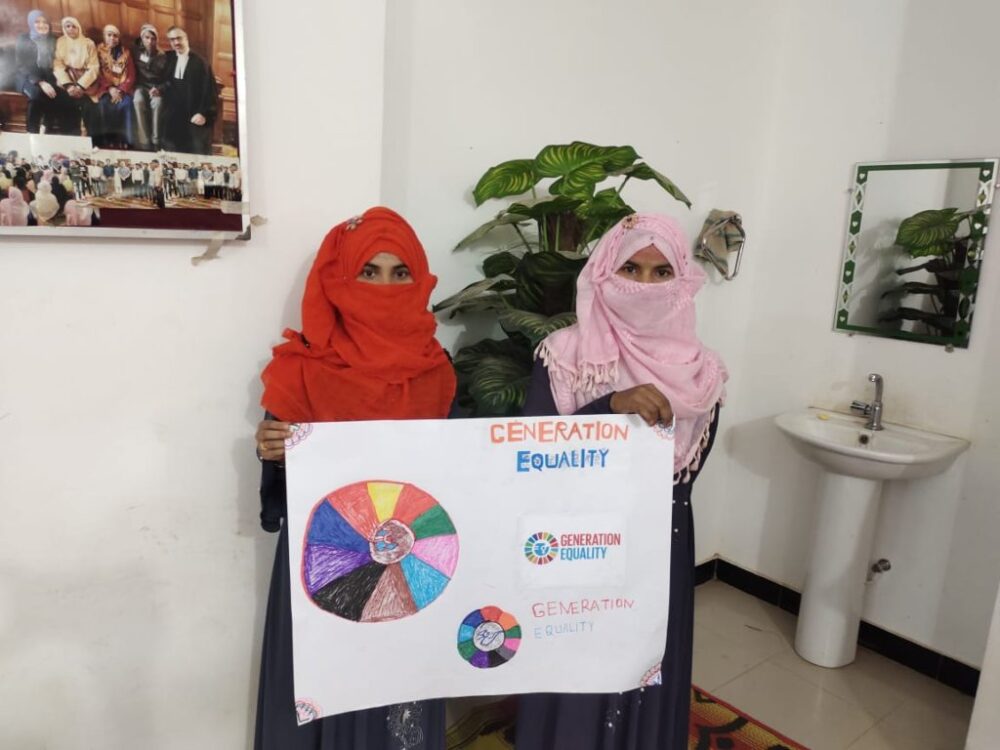
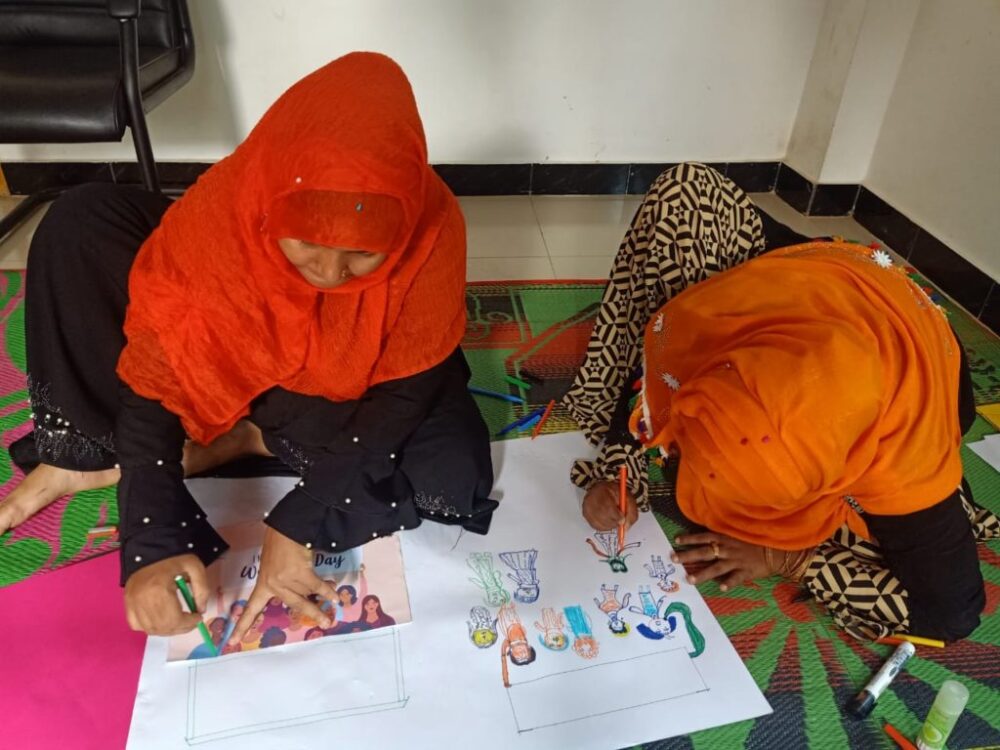
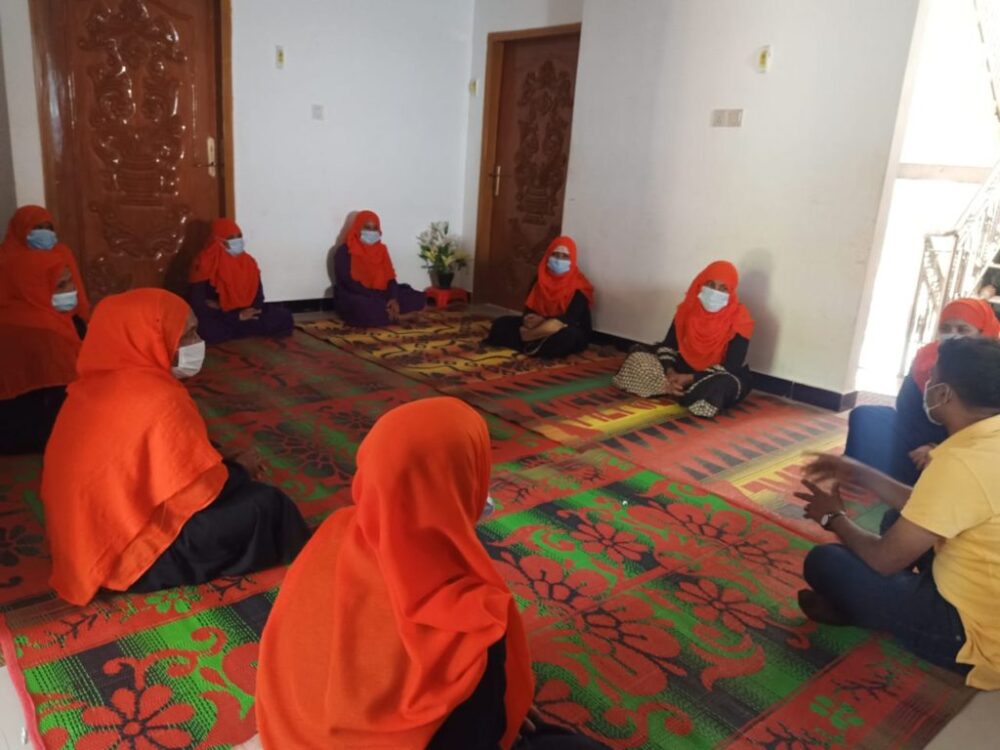
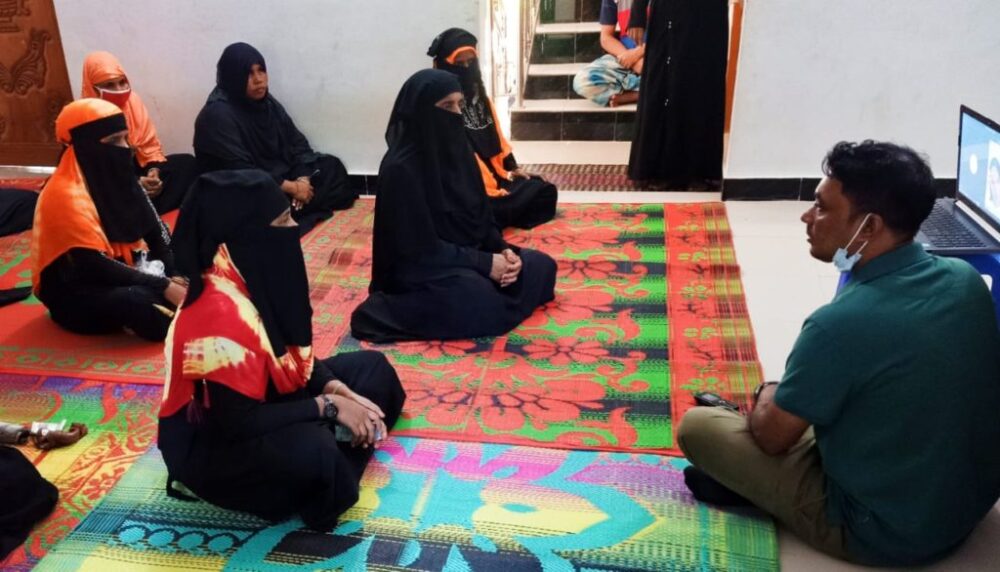
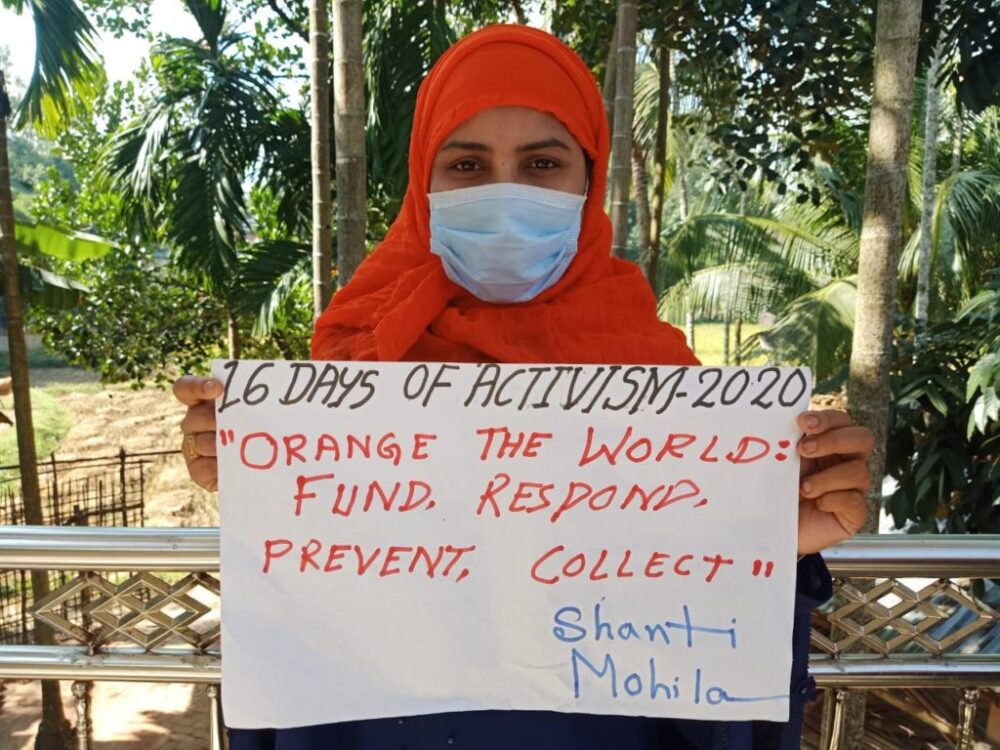
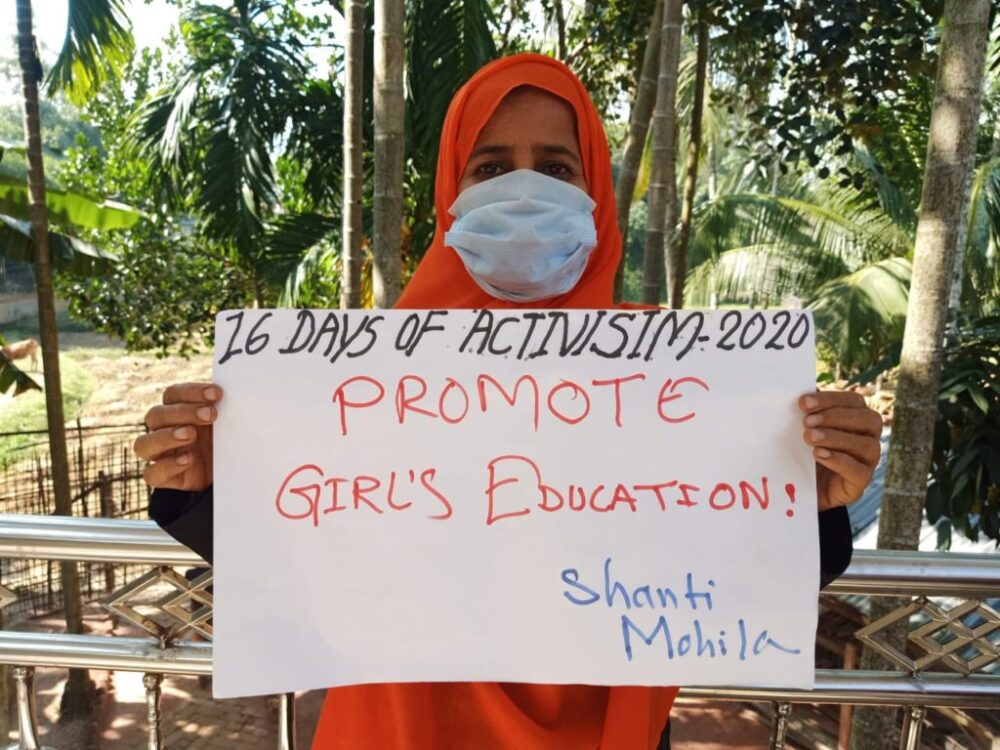
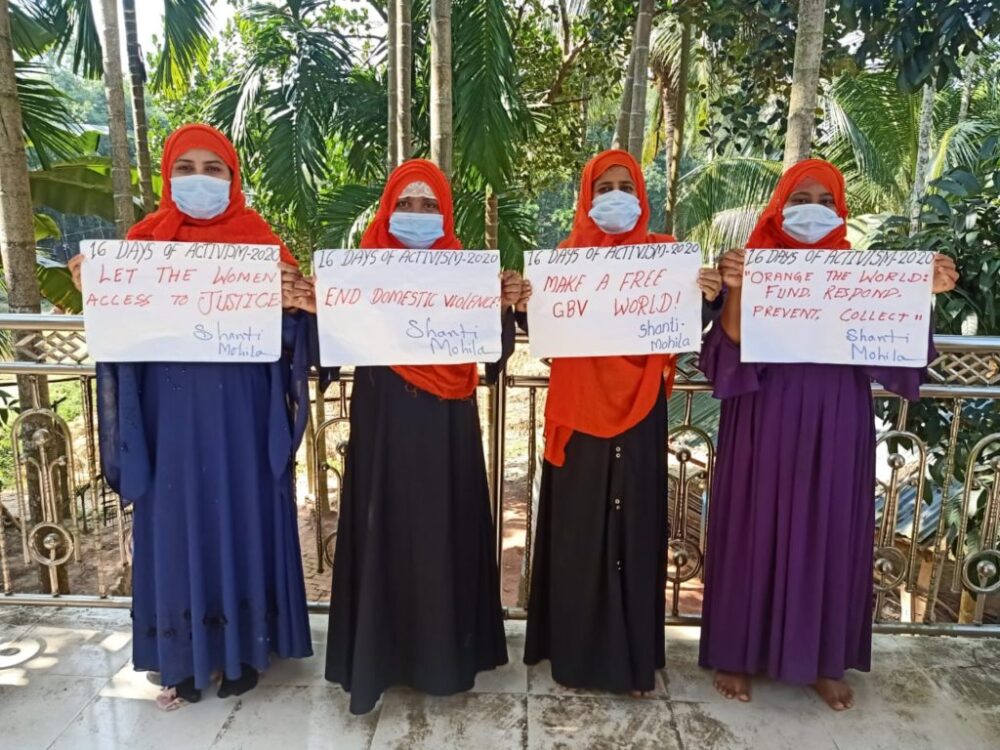
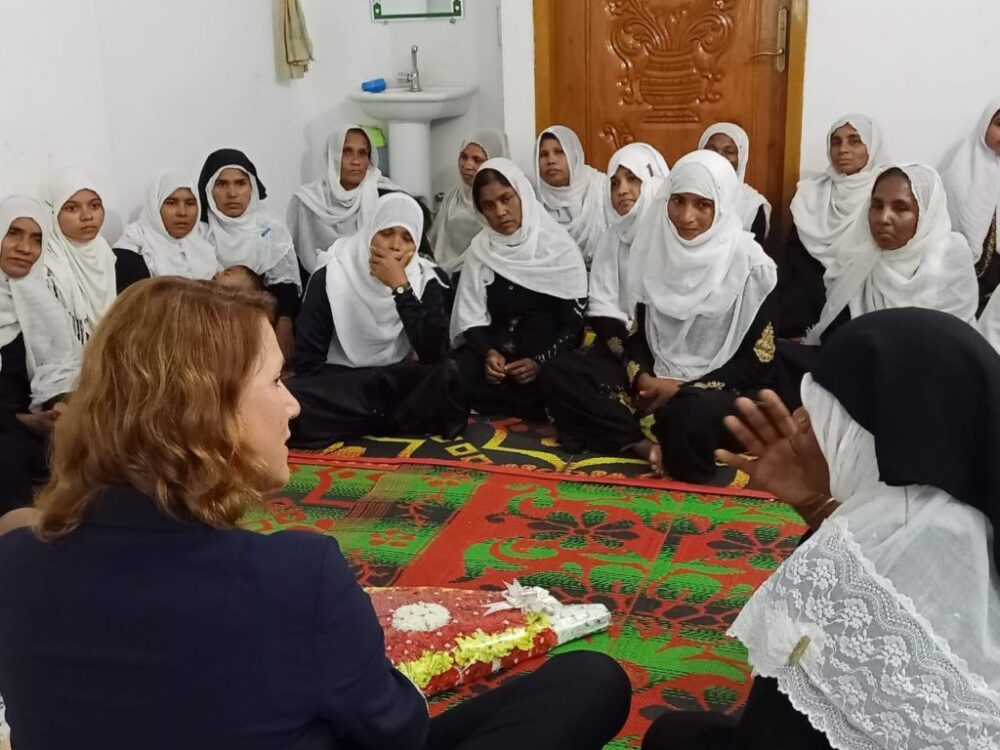
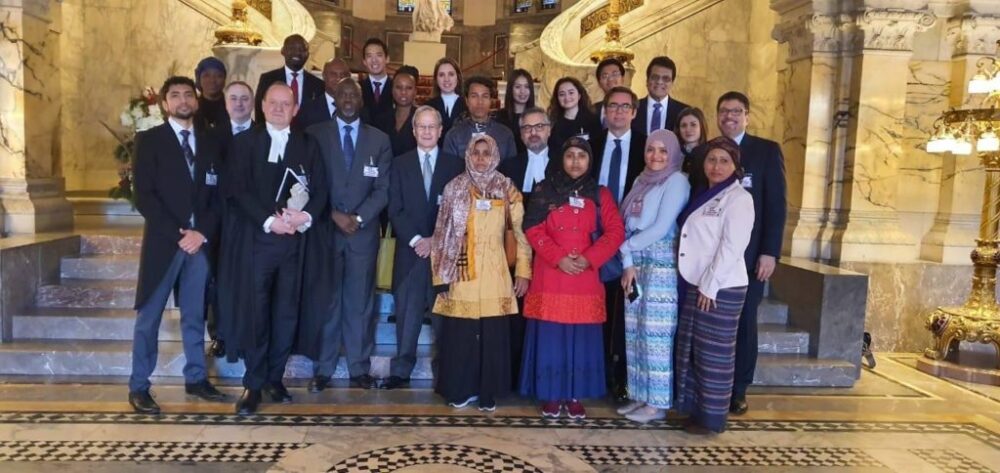
Latest in The Rohingya Crisis
View all-
Brief
Human Rights Council: On Accountability for Crimes in Myanmar, LAW Statement
Accountability & Rule of Law - Myanmar - Rohingya Crisis - Advocacy
-
News
Shanti Mohila honored as one of the ten Raphael Lemkin “Champions of Prevention”
Transformative Justice - Rohingya Crisis - Advocacy - Legal Aid & Empowerment
-
Report
Research Report: “Every Day, I Remember They Destroyed My Life”
Accountability & Rule of Law - Gender Equality & GBV - Myanmar - Rohingya Crisis - Advocacy
